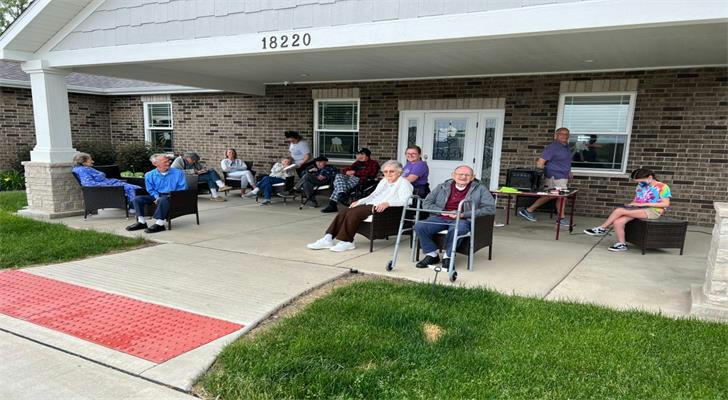Considering a Memory Care Facility for Your Loved One

As the prevalence of Alzheimer’s disease and other forms of dementia continues to rise, many families find themselves facing the difficult decision of whether to place a loved one in a memory care facility. These specialized environments are designed to provide the necessary support and care for individuals with memory impairments. Choosing the right facility is crucial for ensuring your loved one receives the best possible care while maintaining their dignity and quality of life.
Understanding Memory Care Facilities
Definition and Purpose
Memory care facilities are residential communities specifically designed to cater to the needs of individuals with Alzheimer’s disease, dementia, and other cognitive impairments. Unlike traditional nursing homes or assisted living facilities, memory care units focus on providing a secure environment tailored to the unique challenges faced by those with memory loss.
Key Features
Memory care facilities typically offer 24-hour supervision and assistance with daily activities, ensuring that residents receive the help they need at all times. The staff is specially trained in dementia care, allowing them to understand and manage the specific needs of residents effectively. Additionally, these facilities often feature secure environments that prevent wandering, which is a common concern for individuals with memory impairments.
Benefits of Memory Care Facilities
Enhanced Quality of Life
One of the primary benefits of memory care facilities is the enhanced quality of life they provide for residents. These facilities offer structured routines and engaging activities designed to stimulate cognitive function and promote social interaction. Residents have opportunities to connect with others who share similar experiences, fostering a sense of community and belonging.
Health and Safety
Memory care facilities prioritize the health and safety of their residents. With access to medical care tailored to individual needs, residents can receive timely interventions when necessary. Furthermore, these facilities alleviate the burden on family caregivers, allowing them to focus on spending quality time with their loved ones rather than managing daily care tasks.

Factors to Consider When Choosing a Memory Care Facility
Staffing and Training
When selecting a memory care facility, it’s essential to consider staffing levels and training. A higher staff-to-resident ratio ensures that each individual receives adequate attention and support. Additionally, inquire about staff qualifications and ongoing training in dementia care to ensure they are well-equipped to handle the unique challenges associated with memory loss.
Facility Environment
The environment of a memory care facility plays a significant role in residents' well-being. Look for a clean, safe, and homelike atmosphere that promotes comfort. Evaluate communal spaces where residents can socialize as well as private accommodations that allow for personal space.
Programs and Activities
A variety of cognitive, physical, and social activities should be offered within the facility. Personalized care plans that adapt to changing needs are also crucial for ensuring that residents remain engaged and stimulated.
Assessing Your Loved One’s Needs
Signs It May Be Time for Memory Care
Recognizing when it may be time for memory care can be challenging. Signs include safety concerns at home, noticeable changes in behavior, or declining physical health. If you notice these indicators, it may be time to consider a memory care facility.
Involvement in Decision-Making
Involving your loved one in discussions about their care can be beneficial. Encourage open conversations about preferences, concerns, and feelings regarding potential placement in a memory care facility.

Touring Memory Care Facilities
What to Look For During a Tour
When visiting potential memory care facilities, pay close attention to staff-resident interactions and the overall atmosphere. Observing how staff engage with residents can provide insight into the quality of care provided.
Evaluating Amenities
Assessing amenities is also important; consider dining options, recreational activities, and therapy programs available within the facility. These factors contribute significantly to residents' overall satisfaction.
Financial Considerations
Navigating the financial aspects of memory care can be daunting for families. The costs associated with memory care facilities can be substantial, with the median monthly expense in the U.S. reaching approximately $6,200. Understanding the various payment options available is crucial for families looking to provide quality care for their loved ones without overwhelming their financial resources.
Personal Financing Options
Many families utilize a combination of personal savings and assets to cover memory care expenses. Common sources include:
• Savings Accounts and Investments: Many seniors draw from personal savings, retirement accounts (such as IRAs or 401(k)s), and investment portfolios.
• Home Equity: Selling a home or utilizing a reverse mortgage or Home Equity Line of Credit (HELOC) can provide necessary funds for memory care.
• Pensions and Life Insurance: Pension plans can offer a steady income stream, while life insurance policies may be sold or surrendered for cash value to help cover costs.
Public Assistance Programs
In addition to personal financing, several public assistance programs can help alleviate the financial burden of memory care:
• Medicaid: This federal program assists low-income individuals and may cover some memory care services through state-specific Home and Community-Based Services (HCBS) waivers. However, it’s important to note that Medicaid typically does not cover room and board in memory care facilities. Eligibility requirements vary by state, and individuals must often demonstrate a need for assistance with daily living activities Veterans Benefits: The Department of Veterans Affairs offers various benefits that can help veterans and their spouses pay for memory care. Programs like the Aid and Attendance pension provide financial assistance for those who require help with daily activities due to conditions like Alzheimer’s or dementia.
• Social Security Disability Insurance (SSDI): For younger individuals with disabilities, SSDI may provide financial assistance if they meet specific criteria related to their condition.

Non-Profit Organizations and Community Resources
Several non-profit organizations offer resources and support for families managing dementia care costs:
• Alzheimer’s Association: This organization provides information on local resources, support groups, and potential funding options.
• Area Agencies on Aging: These agencies can assist families in finding financial aid programs available in their states.
Many states also have programs that offer additional financial assistance for dementia patients, which may include Medicaid waivers specifically designed to cover home modifications or other supportive services.
Conclusion
Choosing a memory care facility for your loved one is a significant decision that requires careful consideration. By understanding what memory care facilities offer and evaluating key factors such as staffing, environment, and programs, you can make an informed choice that prioritizes your loved one’s well-being. Take your time researching potential facilities and visiting them in person; this diligence will help ensure that your loved one receives the compassionate care they deserve while maintaining their dignity throughout their journey.
